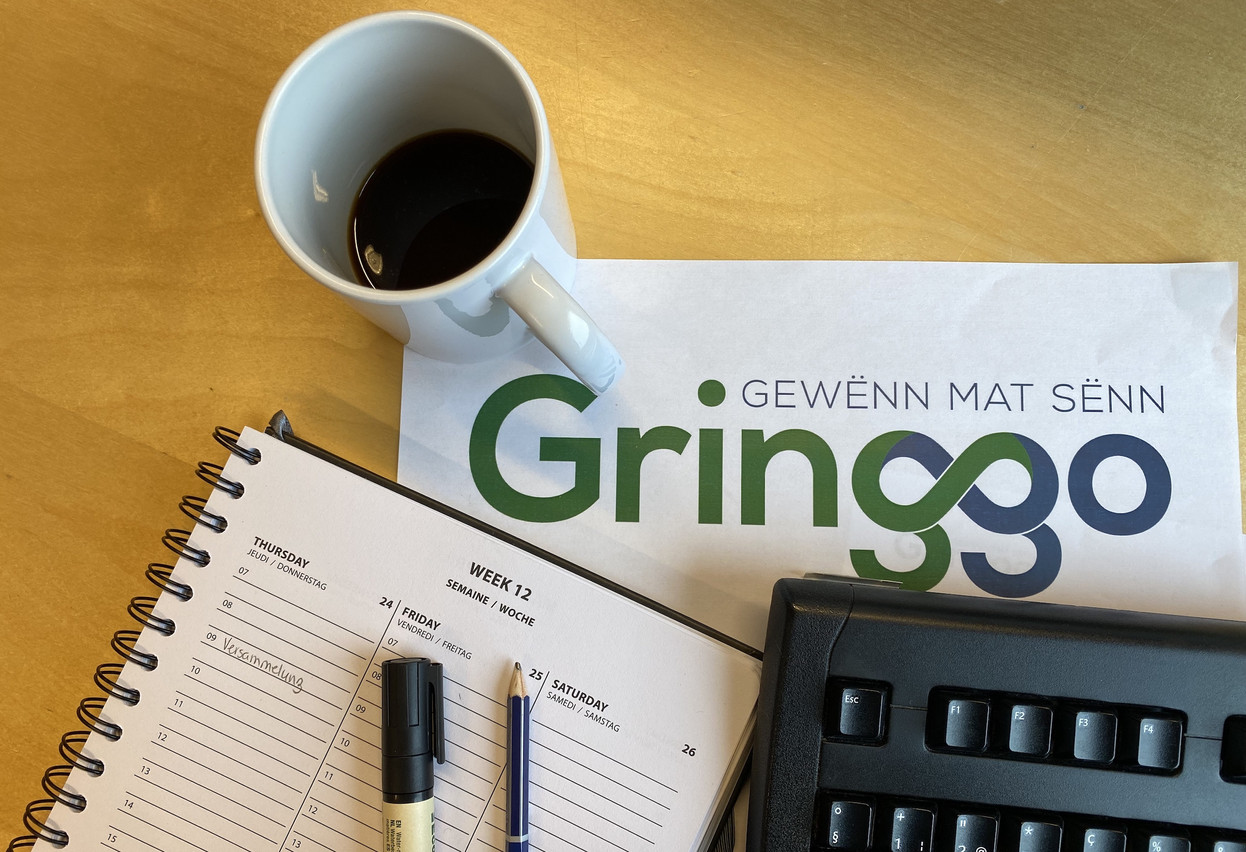The movement towards eco-friendly foods and other products is hardly new anymore, as companies have long since realised that customers care about the environmental impact of what they buy (even if Ouni, Luxembourg’s first packaging-free grocery store, ).
However, a new development within eco-commerce is the emergence, in Luxembourg, of an investment platform for locally made foods and materials. Having already caught on in Germany in the form of a Regionalwert AG (“regional value cooperative”), such a platform has now come to the grand duchy too: it’s called Gringgo.
Gringgo--a pun on the Luxembourgish gréng or “green”--was created in 2017 as an online shop for local and ecologically responsible products. “What’s new,” Jans explains in an interview, “is the possibility to invest in local sustainable projects.” She is referring to the aforementioned investment platform, dubbed “Gringgo Regional Invest,” which was launched in November 2022 in the presence of environment minister (déi Gréng) and agriculture minister (LSAP).
Both the online shop and the investment platform are LEADER projects (Liaison Entre Actions de Développement de l’Économie Rurale or “Links between activities for the development of rural economy”), falling under an EU initiative. The platform operates within the German Regionalwert AG network, which is linked to a license.
Supporting local and responsible projects
“[The platform] allows everybody to invest in, and be the cocreator of, their environment,” says Jans. It could be companies, startups or not-yet-formalised projects on the platform. No matter what, however, they will have to reimburse the money so that it flows back into the cooperative. Shares go for €200 and both individuals and companies can buy them, i.e., become “cooperators.”
“The help that the projects get,” Jans continues, “is adapted to the situation this company--or the little startup, or the project--is in.” As examples she lists buying a machine or renting a van (which perhaps can be shared with another project that needs it). Help can also take the form of buying shares in a company, if its structure allows for that, or giving a loan.
Equally important in the process is the sense of community. “It’s not just about money. It’s also about the network that you build. You create synergies, you realise that other companies have the same issues that you have.” The message is: together, you can go further.
Besides the local aspect of the platform, the central element is that it’s ecologically and ethically responsible. Companies and projects have to meet certain requirements, including the sustainability, recyclability and repairability of the product; being fair trade and fair price; having no animal testing; and others.
The movement
How mainstream is this kind of platform? Or how popular could it eventually be? Jans mentions that the covid-19 pandemic has slowed things down, but that there is still momentum for this kind of localised commerce. She also comments that people in general tend to believe--without having really looked into it--that eco-friendly products are expensive, when this isn’t necessarily the case.
“Well, I don’t know what you buy,” she says, “but have you really compared the prices lately?”
In a larger sense, the draw of a platform like Gringgo is that it enables people, as individuals, to join the fight against climate change and environmental degradation. “If you say, ‘what can I do?’… well, this is something you can do,” Jans says, meaning invest in local companies or buy local products.
“You don’t have to be a victim of the situation.”
One-woman show
Gringgo currently has about 20 companies whose products they sell, while on the investment side it is actively seeking new projects or companies that need support.
And for the time being, Jans is running the day-to-day entirely by herself. “I worked for an international company for 32 years, at different levels,” she says. “I’m very good at structuring, organising, setting things up and being flexible.” The cooperative is overseen by its board, made up of Paul Kauten, Max Hilbert and Julia Schrell.
Asked if an expansion of the team is in the works, Jans says, with a laugh: “Oh, yes, of course. That’s the plan.”
Note: an earlier version of this article erroneously referred to Gringgo as a “company” and to Nancy Jans as its founder; this has been corrected.
